View the spoiler for my guess at what I think it might be, but please first come to your own conclusion before looking at mine — I don’t want to bias your guess.
My guess
Psilocybe cyanescens
They were found in mid-november in the Salish Coast region of Cascadia. They were growing out of woodchips composed of a mixture of western hemlock (majority), and western red cedar.
Side view of one full mature specimen:
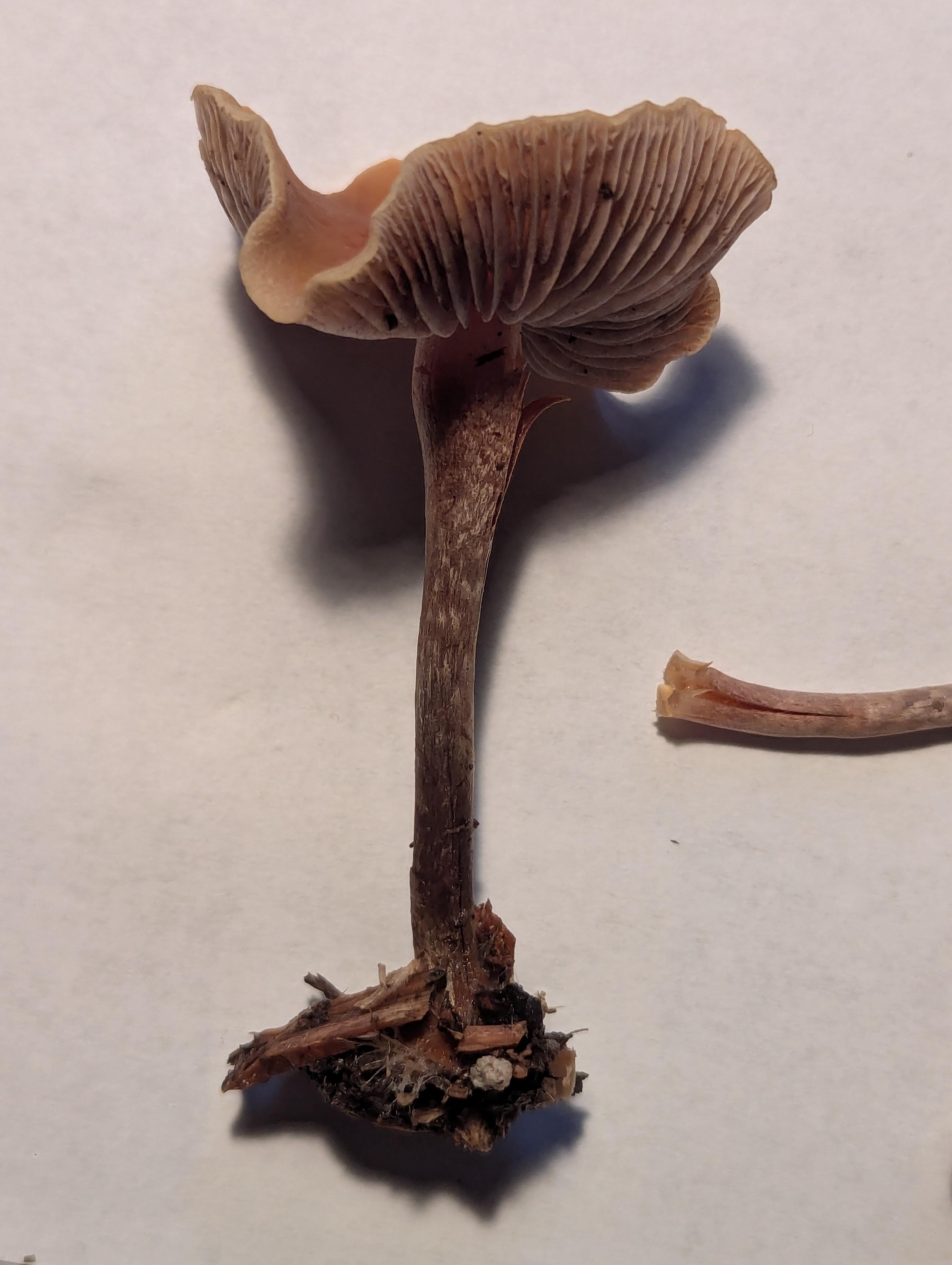
A group with a sample of the substrate (the cap appears to be umbonate):

A closeup side view, and internal view of the stem (it appears to be hollow):
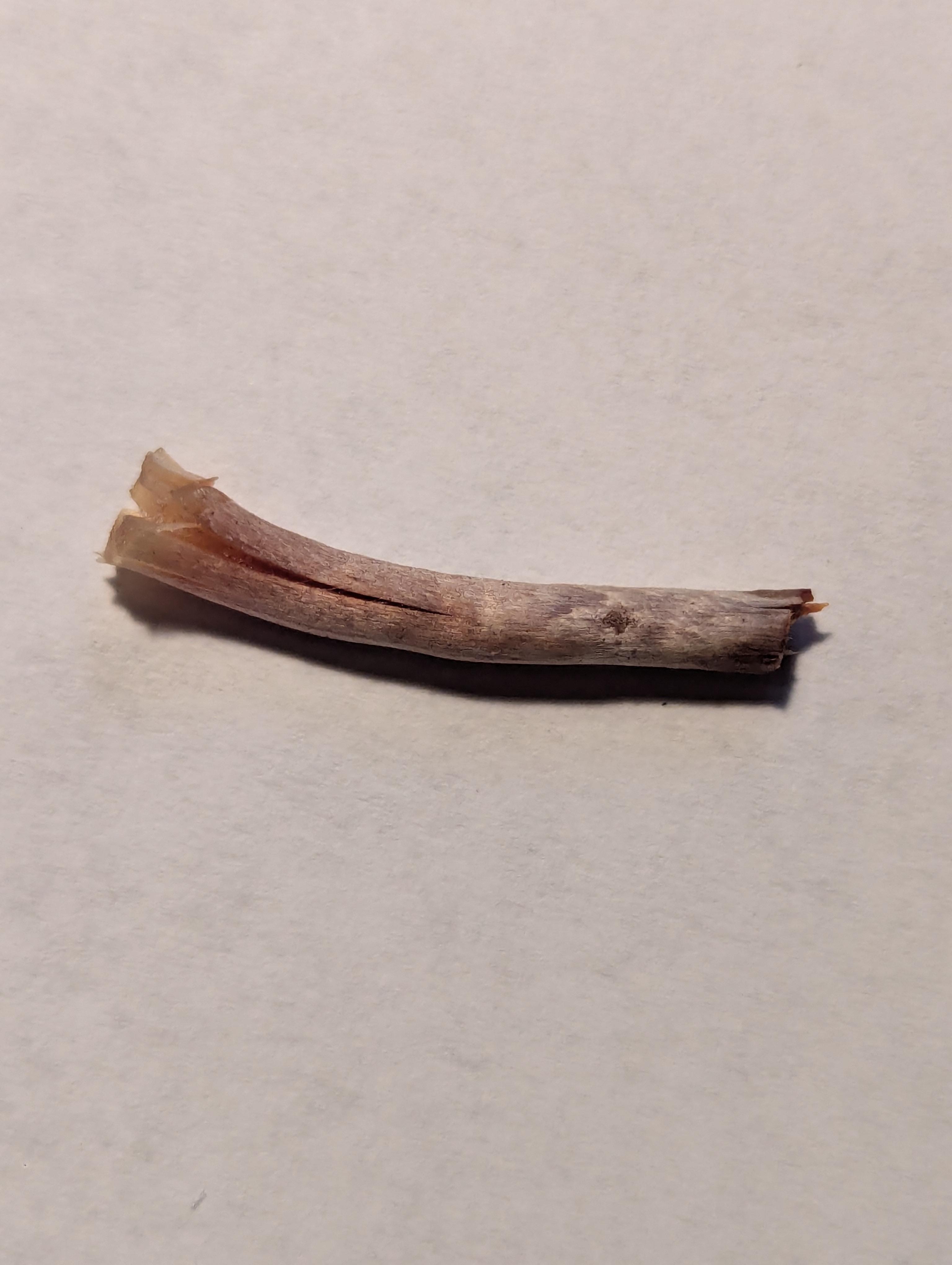
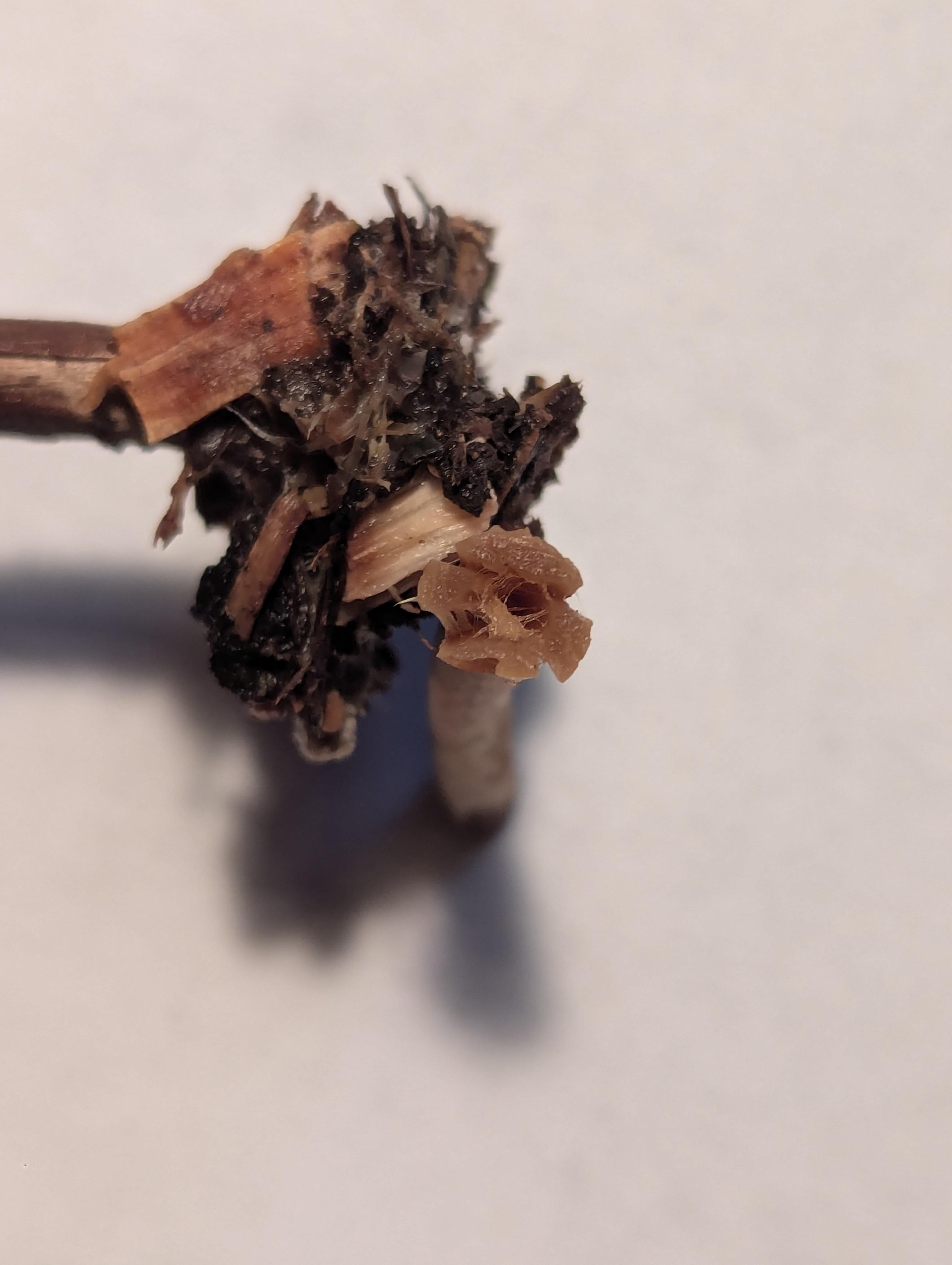
Cross section of the gills — they appear to be adnate, or sub-decurrent:
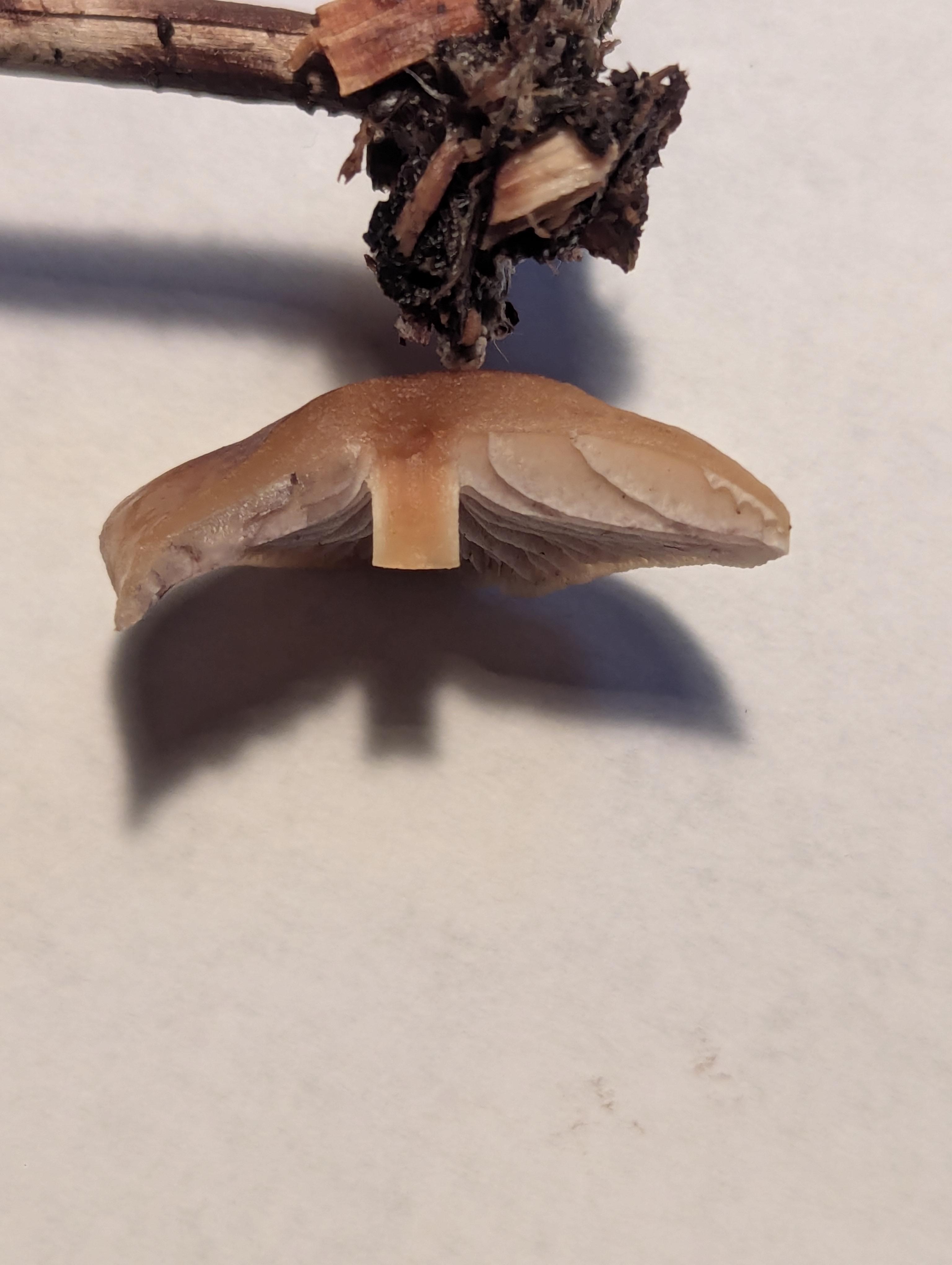
Underside of view of the gills:
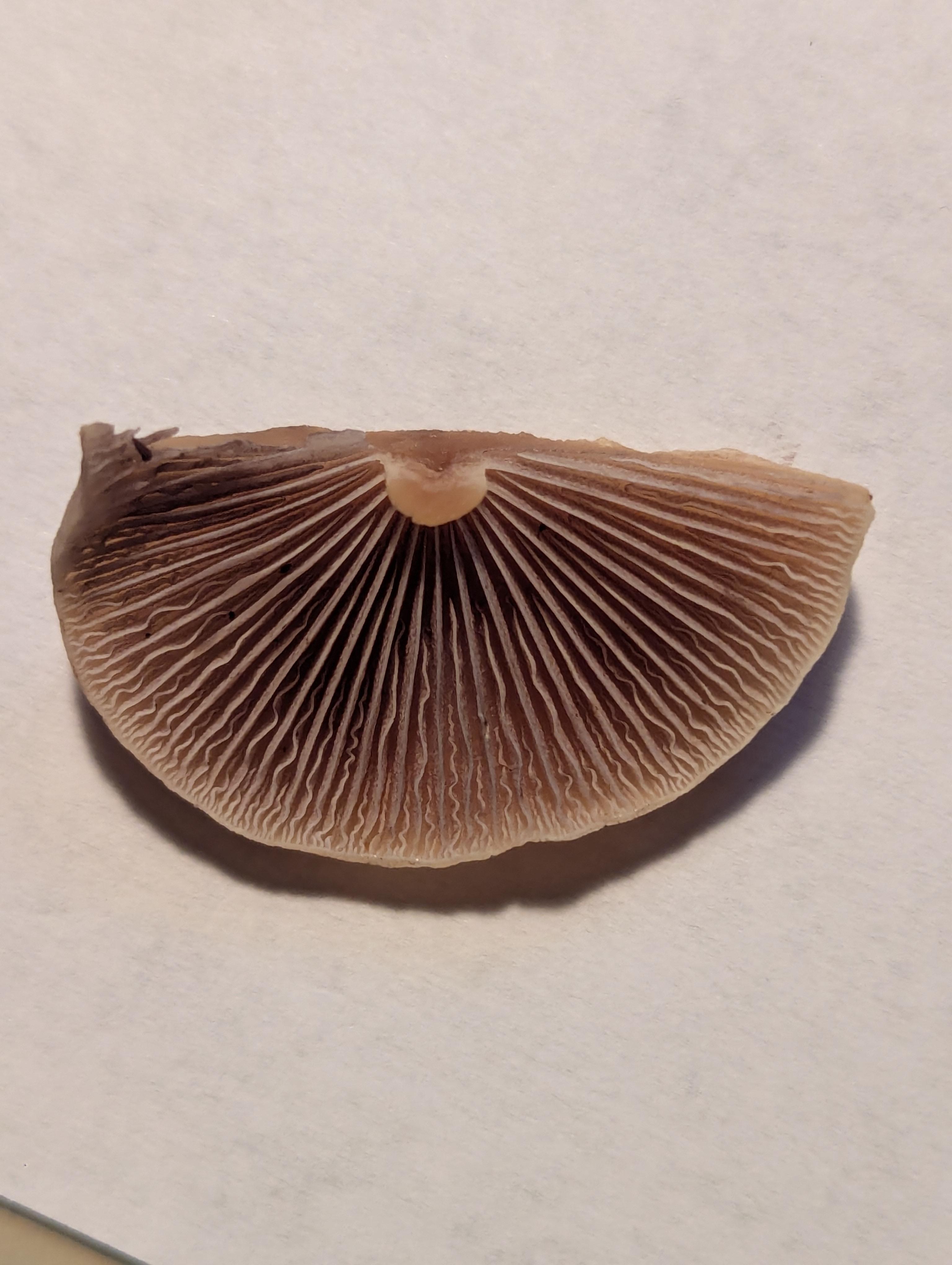
Spore print (first on white background (the split is due to two halves), second on a black background):
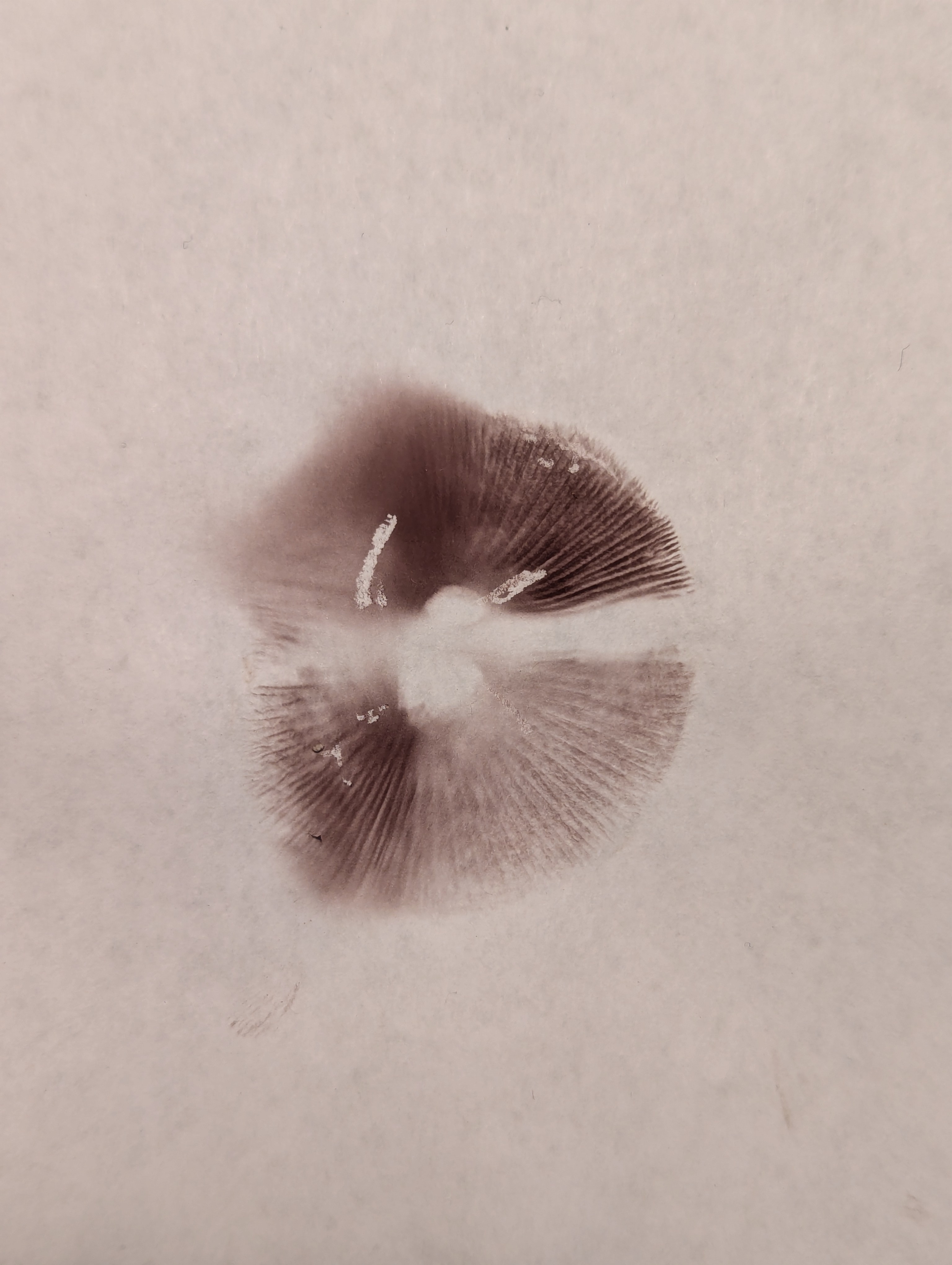
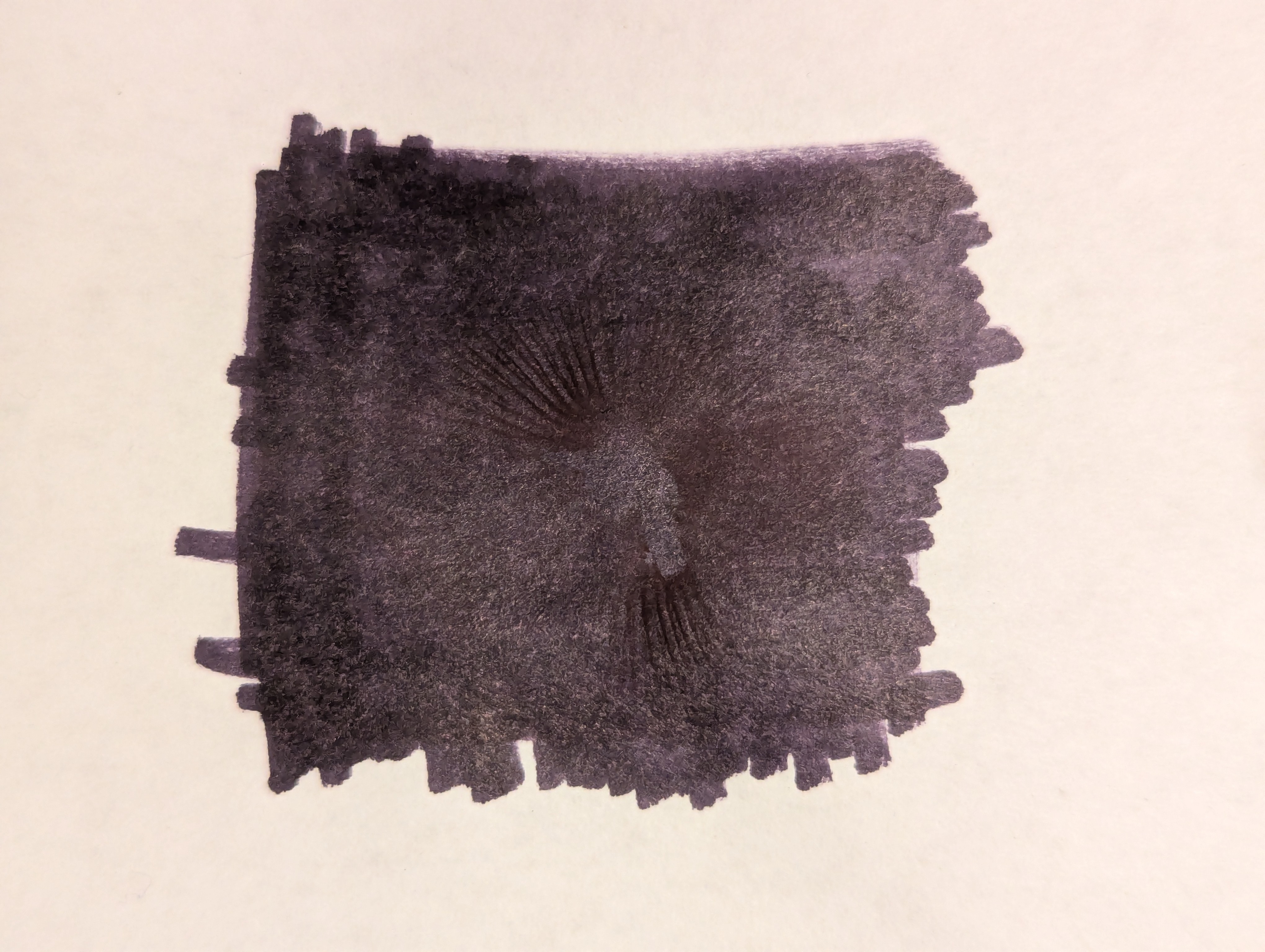
Examples specimens once dried:
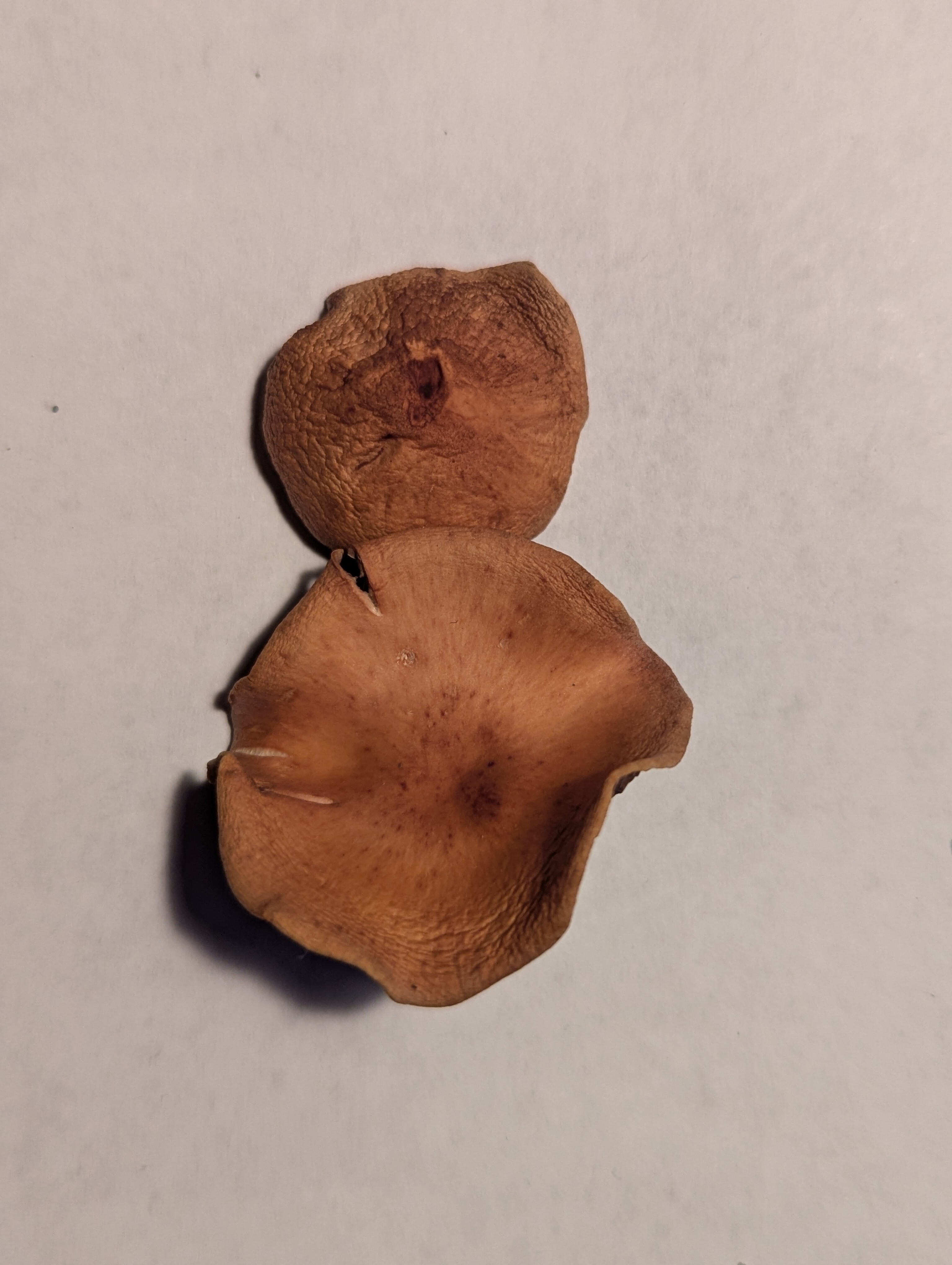
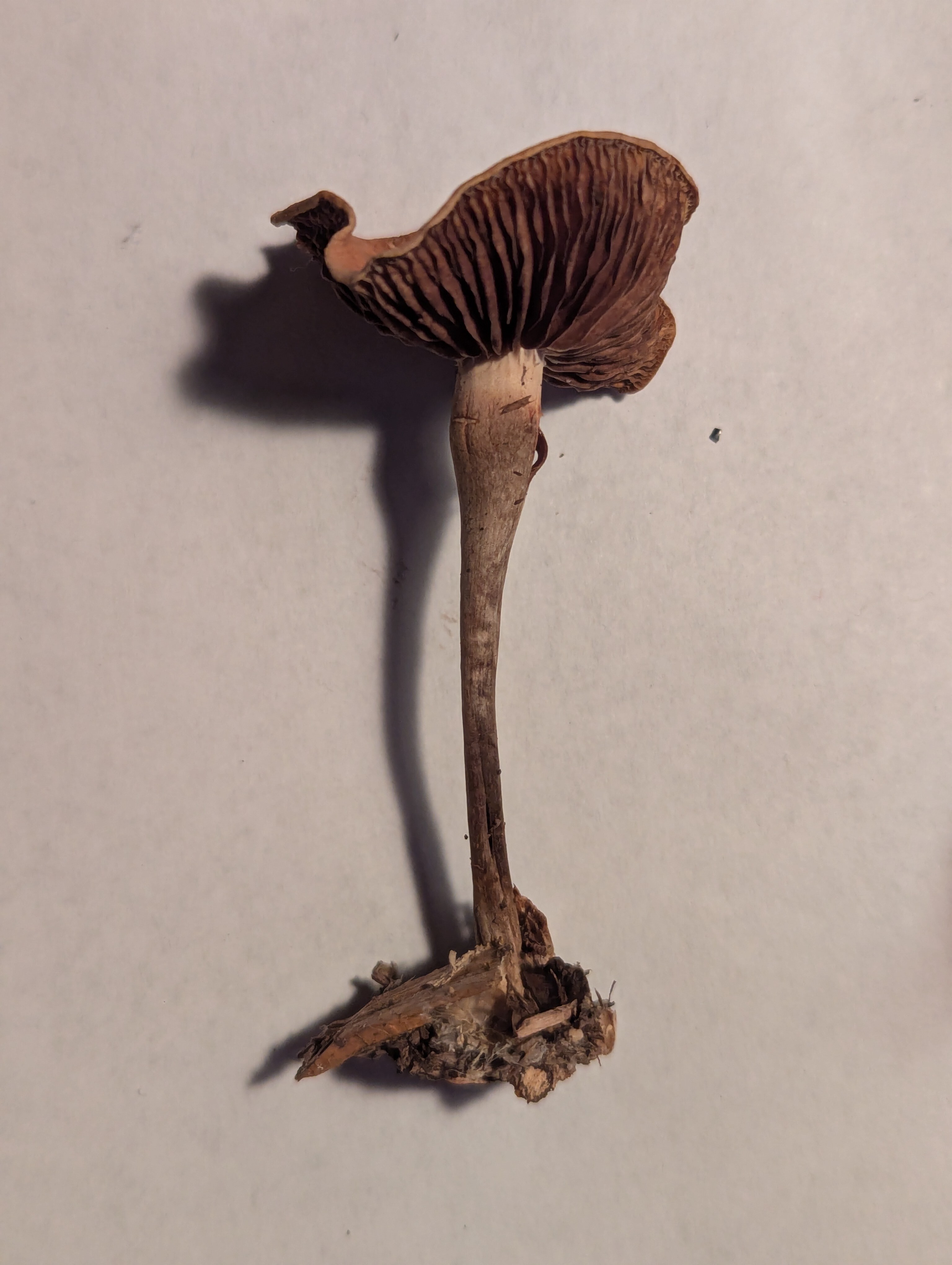
Examples of the colony, and the location/substrate in which it was growing:
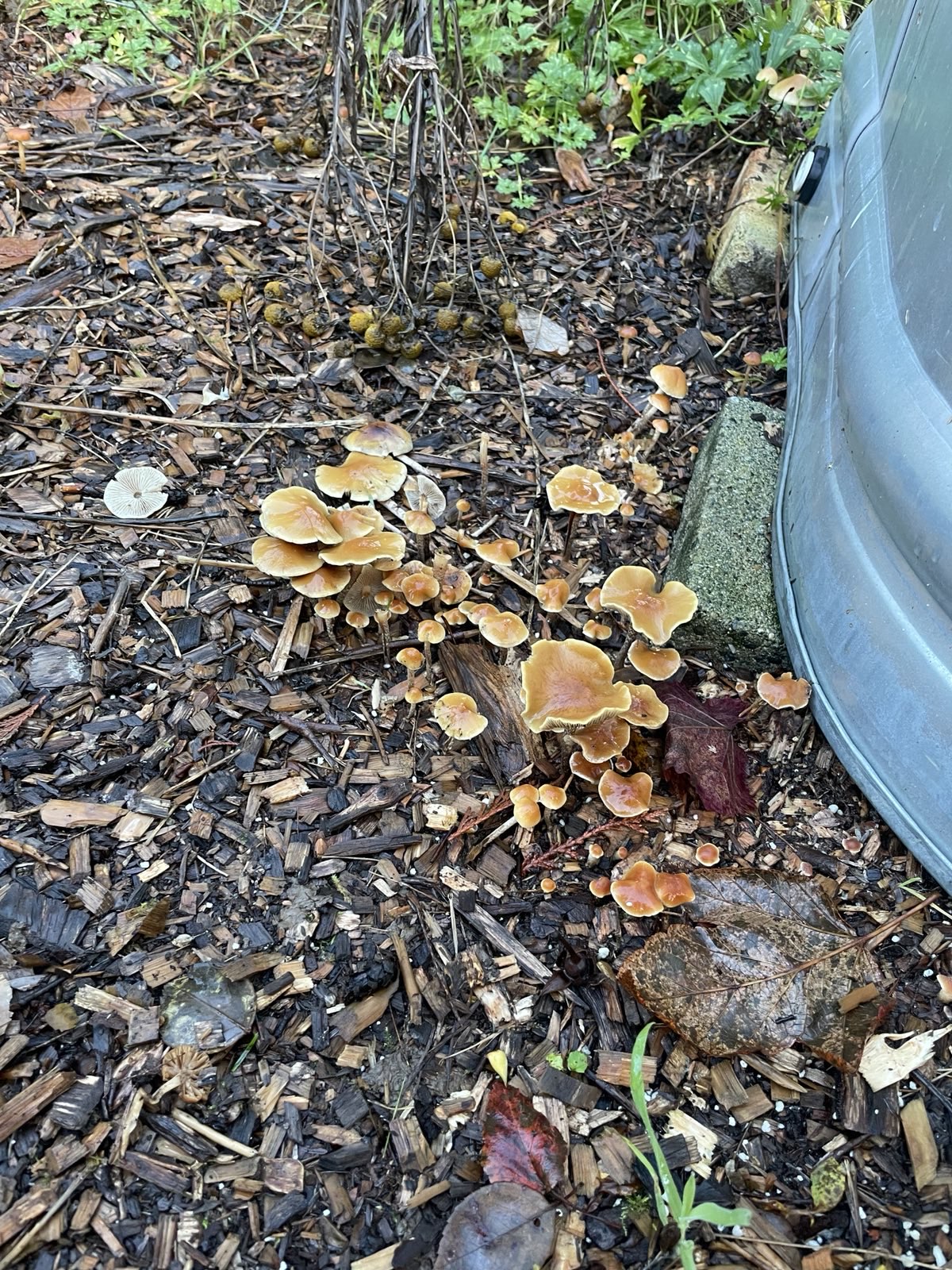
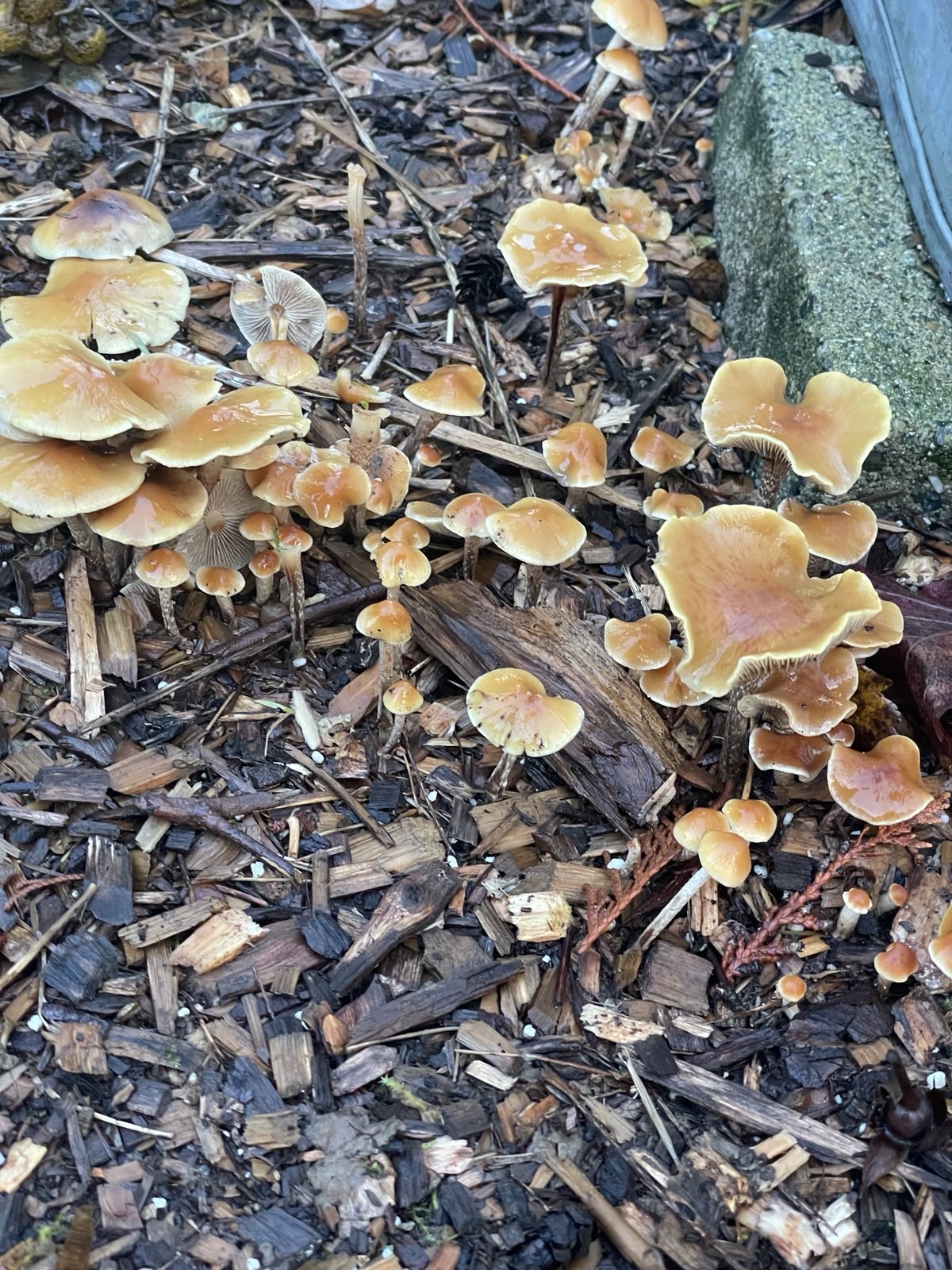
Cross-posts:

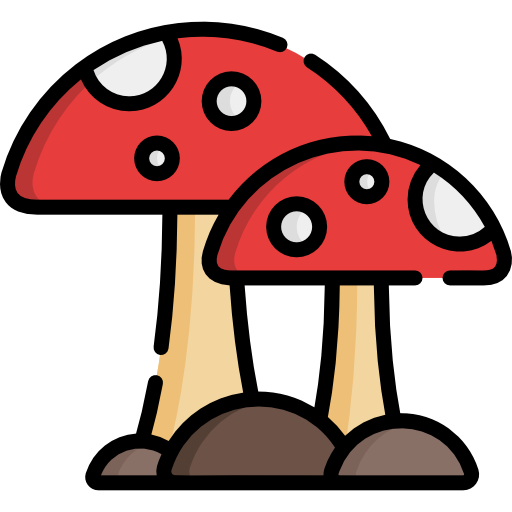
I could understand it seems that way when you don’t have any experience with identifying mushrooms, but there are so many reasons to meet in person and go on forays with people more experienced than you. When you follow taxonomic keys it’s not uncommon that you need to evaluate mushrooms based on their taste (bitterness, piquancy, etc.), their smell, and other qualities that are impossible or difficult to describe objectively or photograph.
As others have pointed out, mushrooms are heavily local and the internet will have people who will easily misidentify a species because it looks just like something they are familiar with in a different region (this is the cause of many deaths, east Asian immigrants coming to the U.S. misidentify deadly poisonous mushrooms as a common edible from back home when they come here).
Furthermore, internet forums are not well suited to the kind of pedagogy and learning that getting experience with mushroom identification requires. You need continued experience watching others identify mushrooms successfully and to learn over the course of their identifications how to identify mushrooms yourself. There is a kind of learning from exposure that happens that way which isn’t replicated easily on a forum.
For clarity, are you saying that there are qualities that can only be taught by first having someone that can already identify the mushroom to then point out the quality that you must memorize for future comparison? Or is it simply a failure of proper communication — ie maybe it is possible to describe these qualities and one is perhaps lacking the sufficient descriptive skills?
I’m saying some mushrooms cannot be identified from photographs, you have to be able to smell, taste, touch, or otherwise interact with the mushroom in person (one mushroom I know of requires hearing!). This is a death-blow to the idea that you can just identify mushrooms from pictures on the internet. Of course some mushrooms cannot even be identified with all of those things, you have to take a spore print and then view the spores under a powerful microscope and be able to measure the spores. Even then some mushrooms cannot be identified to species without a DNA analysis.
For clarity, when I said “describe these qualities” I wasn’t meaning only using photographs. There could be many means of describing the qualities of an object. For example, when you said
There is something that is being sensed that can be documented and/or described — after all we are sensing the quality ourselves. One could try describing textures and tastes, or, perhaps, for greater specificity, a chemical smell or taste signature could be recorded and documented for reference.
I’m obviously not saying that these are things one should be expected to learn or do in the wild for any practical foraging purpose, nor am I saying that it’s an efficient means of learning things, but I think that it is possible to accurately document and describe traits to successfully identity a mushroom without requiring an in-person course. But, of course, it also comes down to knowing what to look for, and where to look.
yes, I think with experience you could describe the taste and get to know it well enough, but I think a complete beginner won’t learn from books and internet forums alone to be able to positively identify mushrooms (I mean, maybe some mushrooms - like chicken of the woods, but I’m thinking of gilled mushrooms in particular). How would you know what one kind of bitter is like vs another without having had the experiences in a foray where someone brings you a bitter mushroom to try and anchor your future experiences by.
You have to remember that mistakes can be quite costly, so it’s more important to take seriously learning the right ways and having good knowledge. This is part of why it’s worth insisting that beginners should go and learn from experts in-person. I’m all for book learning, you should do that too, it’s just not enough for this kind of activity.
I do at least completely agree with you that pure book knowledge isn’t sufficient — one needs a means of comparing their identification with something that can positively confirm the identification’s accuracy. I think we just differ in that you believe that the only means of doing this is through an in-person meetup with a mycologist, whereas, while I agree that that is likely the most efficient, there are other feasible means of arriving at a confirmation; the most extreme of which would likely be something like sequencing the DNA of the mushroom, for example.
I’m still just not super convinced that a large portion of the issue simply isn’t in the quality of the descriptive information that is available generally available.
Very interesting! Which mushroom is that?
I forget the species name now, it launches its spores and you can put it up to your ear and hear the popping sounds.
Neat! Let me know if you remember it 😊
Out of curiosity, where would one look for the database of DNA sequences of things like mushrooms to compare, if one was able to sequence the DNA of a sample that they wish to identify?
the only people I have known to do this are research scientists at universities who join in the forays, I don’t have access to their tools and I doubt you do either (unless you happen to be a scientist at a research university).
If one doesn’t possess the equipment and they wish to sequence DNA, presumably there is somewhere where one could send a sample and pay to have someone sequence it. This thread talks about that.
As a side note, interestingly, it does seem within the realm of possibility for someone to purchase the tech required for sequencing the DNA. On Ebay, for example, I see lab equipment for that purpose at around 500$USD (of course not including any other materials required for the process).
I certainly agree that this is a risk. I think, at least, a big chunk of it could be alleviated by people citing how they know the information that they are providing — eg if someone asks about a mushroom in Cascadia, then someone says they know what it is and then cites their source as knowledge gained in China, it should then raise some red flags, or at least raise the bar significantly for trust.
right, but it’s the internet - you’re just going to get people asserting or agreeing or upvoting without any evidentiality, and trying to pry evidentiality from people will come across as tedious or potentially rude. Maybe in some circles it would be totally fine (like academics), but with the general mushrooming public I suspect you just won’t get a culture like that.
I see your point, and I generally agree, but I think it’s more of a separate issue. I think people should still be pushed to cite sources for their claims.
I think that I would agree that it is at least very efficient means of acquiring mycological information. For example, I went on a day course for morel foraging once, and I definitely learned a lot from that in a much shorter timespan than I likely would’ve by simply reading and asking questions on forums.
yes, absolutely - but it’s not just more efficient, it’s necessary
I’m not denying forums can be useful, they should just be a side thing, in addition to in-person forays
I sort of half agree with this. I think the important component that’s fundamental to what you are decribing is experience. Simply reading about mycology isn’t sufficient; one must also practice identifying what they find, and they must get constant feedback on whether the identifications are correct, and if they aren’t, one must learn why. Where we differ, I think, is that I think that one can do this via forums, it just might be less efficient. One must also be resistant to misinformation, and one must take a scientific approach to how the information is presented rather than purely a teacher/student approach.